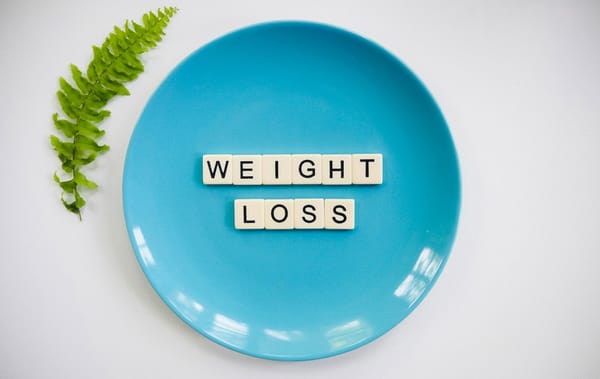Do Cheat Days Boost Metabolism or Just the Scale?

“Just wait for my cheat day, then I’ll kick my metabolism back into gear.”
It sounds reassuring to wait. You eat huge for a day, fire boosts your metabolic machinery, then go back to your usual diet with greater leanness and more energy. Metabolism doesn’t function like electrical switches and single food binges fail to deliver their expected outcome.
Cheat days produce two clear outcomes: rapid scale spikes through water retention as well as temporary boosts in moods and workout enthusiasm. If your goal is to receive real long-term assistance from calorie-rich days your body benefits more from precisely timed refeeds and short diet breaks instead of consuming unlimited food during cheat days.
What “boosting metabolism” would actually mean
Energy expenditure throughout your day comprises four components.
The largest segment of your body's energy usage consists of resting metabolism which maintains organ functioning.
NEAT (everyday non-exercise activity) alongside planned exercise and thermic effect of food (TEF) digesting costing energy) supplements your base resting metabolism.
Protein requires extra energy to digest (between 20% and 30% of its calories) while carbohydrates require moderate (5-10%) and fat minimal (0-3%).
As energy levels decline dieting decreases physiological functions. Dwindling calorie consumption causes your body to reduce resting metabolism in small amounts while your unconscious movement level falls correspondingly and your body's hunger signals transform as ghrelin raises appetite level while leptin bodily energy signals fall.
The physiological process called adaptive thermogenesis creates tougher cutting weeks in week six compared to week one despite caloric targets remaining the same. Any metabolic enhancement which has actual value would require substantial and enduring counterbalance against these biological shifts.
What a cheat day really changes (and for how long)
Digesting bigger meals demands additional body energy. Consuming higher quantities of protein and carbohydrates leads to thermic effect of food (TEF) increases lasting up to 36 hours after eating while protein-heavy foods will extend TEF increases into this timeframe.
This is a real biochemical effect yet it remains small among other body systems. Surpassing maintenance level by 1,500-2,500 caloric intake results in low hundreds of TEF energy gaining efficiency which does not reduce the original excess calories.
Also Read: How Biohacking Can Help Optimize Energy Levels and Recovery
Leptin arises for a short span of time. Carb-based overeating creates a stronger leptin response than fat-based overeating because higher carbohydrate intake makes people feel pleased and energetic. The increase fails to sustain itself. The single-day effect disappears fast and prolonged dieting results in long-term adaptations.
When muscles accumulate glycogen the body also retains water. The body stores carbohydrate inside muscles as glycogen molecules. A gram of glycogen usually stores 3 grams of water inside your body. A couple hundred grams of glycogen restoration will cause a 1-3 kg scale weight increase that happens overnight.
These weight fluctuations consist mainly of water accumulation along with food volume and sodium retention but do not represent fat gain. A regular return to your plan shows most weight gain normalizes within 2-4 days.
More eating causes some people to move more through the day. Physical activity outside structured workouts (NEAT) presents unique patterns in people. Some people increase frequent movement after overfeeding but others simply collapse into the couch.
If you become more active from food intake you might use up a few additional calories. When people become more sedentary after eating more they shouldn't expect their metabolism to speed up.
One cheat day makes you feel better alongside better training alongside increased digestion-related burn for roughly 24 hours. Diet-slowed metabolism does not undergo a “reset” during cheat days.
Why the scale often punishes you on Monday
Your planned weekly reduction of ~3,000-3,500 kcal (approximately 500/day) should keep you within sensible limits. The fat loss which you created in seven days vanishes when you eat 2,000 kcal above your maintenance level on one single day.
Also Read: How to Sync Your Diet and Exercise With Your Natural Body Clock
Your scale will create frightening results on Monday because the glycogen-water jump overlays real body-fat changes. The solution requires moving back to see the bigger picture because daily results after high-carb meals don't show progress but weekly averages and trends over a period of two to four weeks do.
Cheat day vs. refeed vs. diet break (why words matter)
The phrase “Cheat day” describes days when people eat without any restrictions. It remains enjoyable to follow but they often consume excessive calories which damage weeklong progress. Refeeds and diet breaks create separate approaches that have genuine usefulness.
A refeed refers to a scheduled two-day calorie boost at maintenance levels with the focus on carbohydrate increase while protein remains high and fat maintains moderate levels. This scheduled refeed strategy successfully restores glycogen reserves and enhances exercise performance and briefly boosts leptin and mood levels but eliminates large calorie surpluses.
After a prolonged period of calorie restriction a diet break lasts between 1 and 2 or more weeks during which caloric intake returns to maintenance levels. This method absolutely reduces both the physical effects of extended dieting along with the mental fatigue that such dieting creates. A diet break resembles a scheduled recovery intermission more than total quitting.
Cheat = chaos. Refeed = strategy. Diet break = recovery.
How to run a high-calorie day intelligently
Focus on your caloric intake at maintenance instead of going for “exploring what occurs.” For people who want to resume regular caloric intake they should increase their calories with a number close to their daily cut-off value (e.g., increase by 400-700 kcal for individuals who have been dieting).
Start by increasing carbohydrate intake since glycogen replenishment through carbs benefits training and leptin levels better than the identical caloric increase from fat. Maintain protein levels between 1.6-2.2 g/kg to maintain muscle mass while following a moderate fat approach so you do not consume excessive calories and lose control during your day.
Your heaviest workout session should precede your calorie-rich day. Your bar speed together with the number of repetitions and your work capacity will improve. Put fiber food and lean protein foods at the beginning of the day so you avoid extreme hunger when faced with your most tempting meals.
When handling restaurant meals evaluate what additional food is worth two dishes which fill you without disappointment whereas foolish unlimited dining consumes your energy without delivering satisfaction.
The scale should move upwards on the mornings following calorie-rich days. It’s normal weight from glycogen and water storage, not an indication of emergency. After you return to normal eating patterns check your weight within 72 hours to remove most of the weight gain.
When to choose a refeed, and when to take a diet break
When you remain in progress combine refeeds with your plan to maintain workout quality and reduce dieting exhaustion. Lifters and endurance athletes who are cutting bodyfat commonly use one to two refeed days every period of 1-2 weeks as they approach leaner states.
When true consistency produces stalled progress together with extended dieting causing your hunger levels to spike while your gym performance stays low and your mind becomes exhausted you should take a diet break.
A two-week diet maintenance period without added surplus calories helps restore both training capability and mood as well as sleep quality which primes subsequent fat loss.
Both dieting methods present no supernatural abilities. Both methods succeed because they preserve performance throughout dieting while protecting diet consistency instead of delivering binges when people switch between extreme restriction to sudden overeating.
Red flags your “cheat” is hurting more than helping
Whenever your weekly calorie consumption stops staying below maintenance your plan breaks down. When your goal remains steady following a cheat day you will commonly restrict your food intake immediately after your cheat day and then repeatedly binge outside of that initial self-imposed restriction.
Your plan needs to move away from current behavior patterns by replacing a single planned meal (or maintenance refeed) with clear boundaries which require a defined reservation time and limit desserts at the table and prohibit liquid calories except selected drinks. Your objective needs to focus on enjoying food with deliberate intention instead of creating Monday chaos that requires immediate fixing.
Bottom Line
Do cheat days boost metabolism, or just the scale? When you indulge in cheat days your metabolic boost remains minimal while your scales display immediate responses. These activities lead temporary increases in calorie burning and leptin levels as well as replenishment of glycogen stores which remain short-lived.
A single indulgent day will not deliver the metabolic “reset” people expect to achieve. Smart programming methods like refeeds which strengthen training while maintaining deficit status and diet breaks which renew your mental and physiological capacity to continue function as metabolic movers in this context.
Keep your higher-calorie day ritual if you enjoy it but structure it for maximum benefit. The ideal approach for your higher-calorie day is to meet maintenance nutritional needs with carbohydrate-heavy meals with protein and fat levels set at moderate levels at times when increased performance returns value to you.
When you require more than one day step away from your current routine and spend some time at maintenance to restore your energy before returning. You will experience both the relief and the success without missing out on a week's progress due to your enthusiastic food choices.



